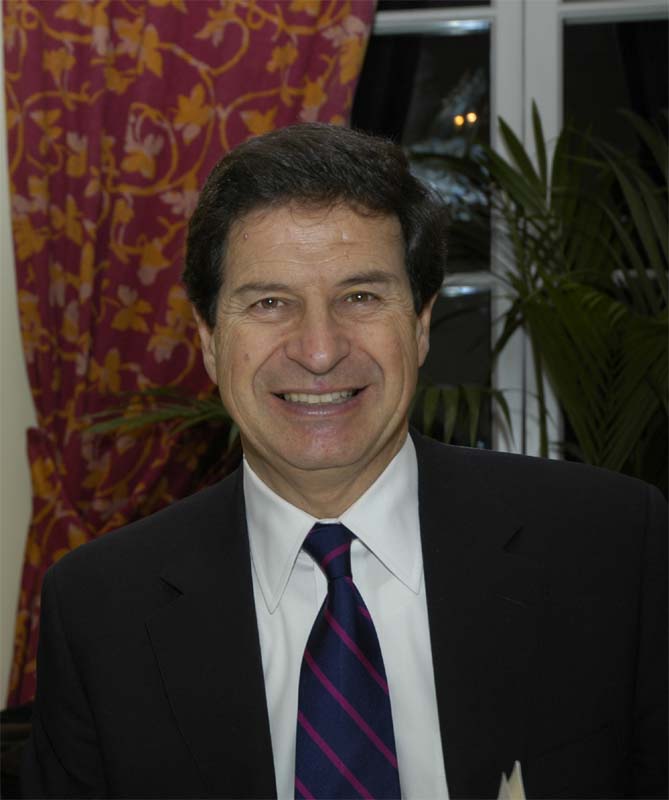- Bernardo Huberman
Infobox_Scientist
name = Bernardo Huberman

image_width = 200pxbirth_date =
birth_place =
_place =
residence =
citizenship =
nationality =
ethnicity =
field =Physics Computer Science
work_institutions = Xerox PARCStanford University Hewlett-Packard Labs
alma_mater =University of Pennsylvania ,University of Buenos Aires
doctoral_advisor =
doctoral_students =
known_for =ecology of computation prediction markets dynamics of complex structures
author_abbrev_bot =
author_abbrev_zoo =
prizes =
religion =
footnotes =Bernardo Huberman is a Senior Fellow at
HP Labs , and Director of the Social Computing Lab at HP Labs. He received his Ph.D. in Physics from theUniversity of Pennsylvania , and is currently a Consulting Professor in the Department ofApplied Physics and the Symbolic System Program atStanford University .Early life and work
Originally from
Argentina , Huberman received his MS at theUniversity of Buenos Aires , Argentina in 1966. He received hisPhD inPhysics from theUniversity of Pennsylvania in 1971. He has worked as a visiting scientist at theInstitut Laue-Langevin in Grenoble, France and Institute of Theoretical Physics,Hebrew University of Jerusalem , Israel. He was also a Visiting Professor at theUniversity of Paris , theEcole Normale Superieure , in Paris, France, theNiels Bohr Institute in Copenhagen, Denmark, and the European School of Business,INSEAD in France. He served as a Trustee and Secretary at the Aspen Center for Physics between 1980-1983.Huberman originally worked in condensed matter physics, ranging from superionic conductors to two-dimensional superfluids, and made contributions to the theory of critical phenomena in low dimensional systems. He was one of the discoverers of chaos in a number of physical systems, and also established a number of universal properties in nonlinear dynamical systems. His research into the dynamics of complex structures led to the discovery of ultradiffusion in hierarchical systems.
Huberman joined
Xerox Corporation's Palo Alto Research Center, PARC, where, in the field of information sciences, he predicted the existence of phase transitions in large scale distributed systems, and developed an economics approach to the solution of hard computational problems. He has authored or edited three books about the ecology of computation and the ecology of the web. [citation
last1 = Huberman
first1 = Bernardo A.
year = 2001
publisher = MIT Press
title = The Laws of the Web: Patterns in the Ecology of Information -- II
url = http://mitpress.mit.edu/catalog/item/default.asp?tid=8498&ttype=2 ] [citation
last1 = Huberman
first1 = Bernardo A.
year = 1992
publisher = World Scientific Publishing
title = Computation: the micro and the macro view -- II
url = http://www.worldscibooks.com/compsci/1672.html ] [citation
last1 = Huberman
first1 = Bernardo A.
place = New York, NY
year = 1998
publisher = North Holland Publishing
title = The Ecology of Computation -- II
url = http://portal.acm.org/citation.cfm?coll=GUIDE&dl=GUIDE&id=59160 ] .In 1989 he and colleagues designed and implemented Spawn, a market system for the allocation of resources among machines in computer networks, and a few years later a multiagent thermal market mechanism for the control of building environments. A similar subsequent work at HP Labs called Tycoon received the Horizon Award for Innovation. After working at Xerox PARC, Huberman became a Senior Fellow at
HP Labs .Recent work and recognition
For several years, Dr. Huberman's research concentrated on the World Wide Web, with particular emphasis the dynamics of its growth and use. With members of his group he discovered a number of strong regularities, such as the dynamics that govern the growth of the web, and the laws that determine how users surf the web and create the observed congestion patterns.
Presently, Huberman's work centers on the design of novel mechanisms for discovering and aggregating information in distributed systems as well as understanding the dynamics of information in large networks.
Awards and honors
* Fellow, American Association for the Advancement of Science
* Fellow, Japan Society for the Advancement of Science
* Fellow, American Physical Society
* CECOIA Prize on Economics and Artificial Intelligence
* IBM Prize of the Society for Computational Economics
* Trustee, Aspen Center for Physics
* Chairman, Council of Fellows at Xerox CorporationReferences
External links
* [http://www.hpl.hp.com/research/idl/people/huberman/Bernardo-patents.pdf Bernardo Huberman’s Patents]
* [http://www.hpl.hp.com/research/idl/people/huberman/Bernardo-Published-Papers.pdf Bernardo Huberman's bibliography]
* [http://www.hpl.hp.com/research/idl/people/huberman Bernardo Huberman's homepage]Persondata
NAME= Huberman, Bernardo
ALTERNATIVE NAMES=
SHORT DESCRIPTION=Physics
PLACE OF BIRTH=
DATE OF DEATH=
PLACE OF DEATH=
Wikimedia Foundation. 2010.
